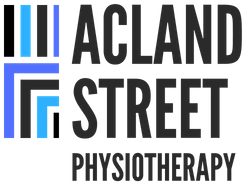|
Extracorporeal Shockwave Therapy (ESWT) has evolved from a puzzling treatment modality to a clinically proven technique utilised by physiotherapists since its inception in the 1980s. Initially deployed to obliterate kidney stones, this technology pivoted in the 1990s, focusing its high-energy acoustic pulses on addressing musculoskeletal disorders and tendinopathies. As research unfolded, its applications in treating various musculoskeletal dilemmas expanded, and institutions like Acland Street Physiotherapy have become adept at discerning suitable candidates for Shockwave Therapy.
Understanding the Healing Mechanism of Shockwave Therapy Despite being potentially undervalued due to its somewhat enigmatic nature, Shockwave Therapy operates on a thoroughly researched mechanism. The therapy deploys high-energy acoustic pulses or shockwaves, emanating from an ESWT unit, to stimulate small fibres. This activation, in turn, fortifies the body’s serotoninergic system, reducing nerve pain signals dispatched to the brain, and propels healing through enhancing local blood flow and metabolic reactions by breaking down calcifications and ameliorating the body’s inherent healing and pain management systems. Conditions Addressed by Shockwave Therapy Shockwave therapy proves its mettle by not only enhancing pain management and mobility but also by improving bone density and breaking down scar tissue, offering a non-surgical and non-invasive remedy for numerous conditions.
Navigating Through a Shockwave Therapy Session Prioritising the accurate identification of suitable patients and conditions for ESWT is pivotal, and Acland Street Physiotherapy invests in a comprehensive assessment of candidacy following a precise diagnosis. Contrary to its somewhat intimidating name, Shockwave Therapy is generally painless, a testament to the evolution of the technology since its early, more discomforting days. The modern iterations used by clinics like Acland Street Physiotherapy no longer necessitate local aneasthetic. A typical session, lasting a mere 5-10 minutes, involves the physiotherapist employing the shockwave therapy handpiece onto the impacted area, meticulously transmitting shockwaves to facilitate healing. Patient feedback plays a crucial role in optimising the applicator position and treatment intensity. While Extracorporeal Shockwave Therapy provides an invaluable toolkit in managing several conditions, it isn’t a universal remedy. Its pros, cons, and future research areas, encompassing issues like temporomandibular joint pain and varying tendinopathies, continue to unfold. However, unraveling the mysteries of Shockwave Therapy begins with a simple conversation with your physio, exploring its applicability and potential efficacy for your condition.
0 Comments
|
Author
Archives
May 2024
|
Copyright Acland Street Physiotherapy © 2024

 RSS Feed
RSS Feed